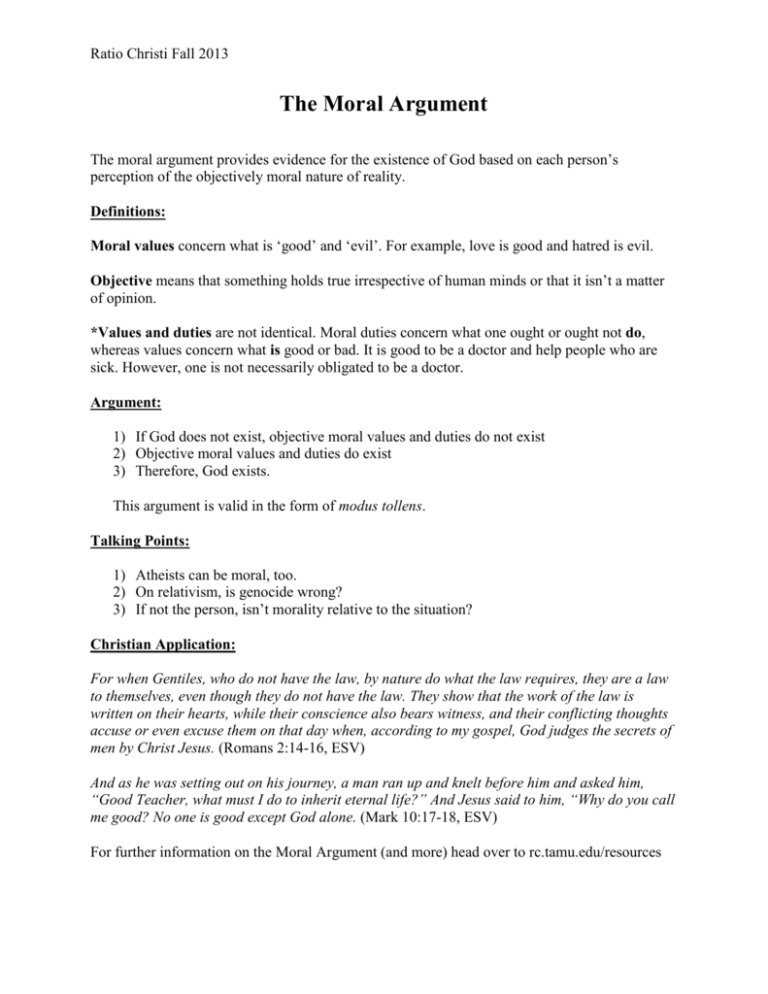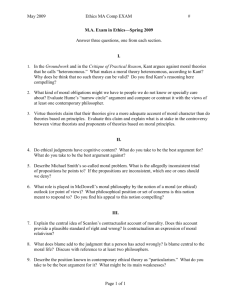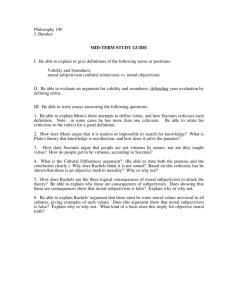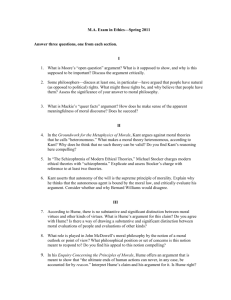Outline
advertisement

Ratio Christi Fall 2013 The Moral Argument The moral argument provides evidence for the existence of God based on each person’s perception of the objectively moral nature of reality. Definitions: Moral values concern what is ‘good’ and ‘evil’. For example, love is good and hatred is evil. Objective means that something holds true irrespective of human minds or that it isn’t a matter of opinion. *Values and duties are not identical. Moral duties concern what one ought or ought not do, whereas values concern what is good or bad. It is good to be a doctor and help people who are sick. However, one is not necessarily obligated to be a doctor. Argument: 1) If God does not exist, objective moral values and duties do not exist 2) Objective moral values and duties do exist 3) Therefore, God exists. This argument is valid in the form of modus tollens. Talking Points: 1) Atheists can be moral, too. 2) On relativism, is genocide wrong? 3) If not the person, isn’t morality relative to the situation? Christian Application: For when Gentiles, who do not have the law, by nature do what the law requires, they are a law to themselves, even though they do not have the law. They show that the work of the law is written on their hearts, while their conscience also bears witness, and their conflicting thoughts accuse or even excuse them on that day when, according to my gospel, God judges the secrets of men by Christ Jesus. (Romans 2:14-16, ESV) And as he was setting out on his journey, a man ran up and knelt before him and asked him, “Good Teacher, what must I do to inherit eternal life?” And Jesus said to him, “Why do you call me good? No one is good except God alone. (Mark 10:17-18, ESV) For further information on the Moral Argument (and more) head over to rc.tamu.edu/resources











